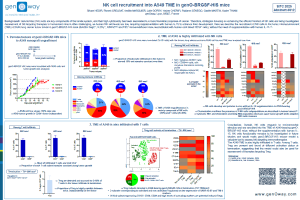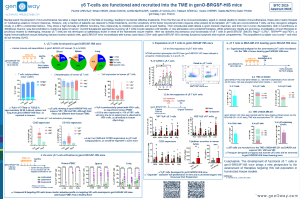Related resources and publications

TME composition in genO-BRGSF-HIS mice

genO-BRGSF-HIS for γδ T-cell therapies

TME composition in genO-BRGSF-HIS mice
.webp)
TME composition in genO-BRGSF-HIS mice
.webp)
TME composition in BRGSF-HIS mice

BRGSF-HIS for safety assessment

In vivo tumor growth suppression

BRGSF-HIS & tumor microenvironment

BRGSF-HIS & myeloid cell compartment in CRS

BRGSF-HIS & hFcγR to assess cell depletion

BRGSF-HIS for myeloid-directed therapy assessment

CD3 and BRGSF-HIS to assess IrAEs

BRGSF-HIS & hVISTA for immunotherapies
J Clin Invest
Cancer Biol Ther
Allergy
Front Immunol
Cancer Immunol Res
Nat Commun
Front Immunol
JBMRplus
Immuno-oncolology models
Immuno-oncolology models
Immunotherapy in BRGSF-HIS
PDX in BRGSF-HIS
Myeloid compartment in BRGSF-HIS























